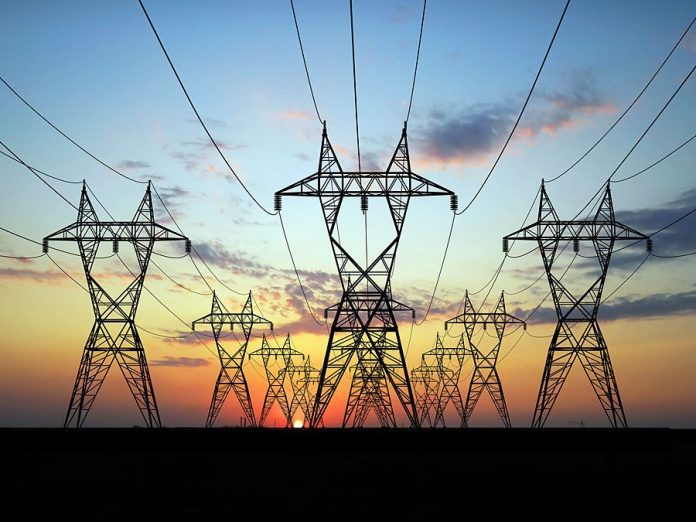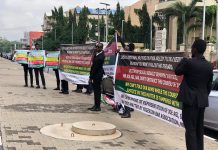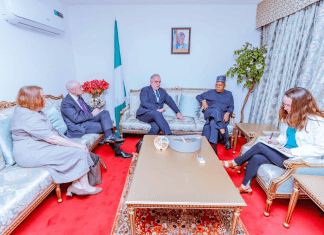

As Nigerians grapple with the latest hike in electricity tariffs, soaring from N66 to N225 per kilowatt, concerns arise regarding its implications on the effective delivery of essential public services.
How will the Nigerian Electricity Regulatory Commission, NERC, classify public health and educational institutions providing social services to communities across the country but are unable to charge economic rates?
Health sector, categorized as a social service, stands as a cornerstone of human capital development. It holds a central role in the economic progress of a nation. The axiom “a healthy nation is a wealthy nation” encapsulates the belief in the symbiotic relationship between health and prosperity.
Given this context, any country aspiring for progress must deliberately allocate resources to enhance its healthcare sector. The Federal Government, realizing this need and in demonstration of its promise to prioritize health care for Nigerians voted more than N1.2 trillion for the sector in the 2024 Budget.

Recently, the Ministry of Health and Social Welfare and the Nigeria Sovereign Investment Authority, NSIA, signed a Memorandum of Understanding to enhance oncology care in the country. The Minister, Prof. Muhammad Ali Pate and the Managing Director of NSIA, Mr Aminu Umar-Sadiq put pen to paper in Abuja in a collaboration to procure oncology equipment for the management of cancer.
Under the agreement, NSIA will spend N37.4 billion to refurbish and equip six federal teaching hospitals with state-of-the-art medical equipment such as Linear Accelerators, CT Simulators, Brachytherapy Machines, Chemotherapy Suites, PET Scan, Cyclotron and Radio-Pharmacy.
This lofty idea of equipping the teaching hospitals with modern medical equipment may however be jeopardized with the epileptic supply of electricity which experts say are inimical to the optimal functionality of these equipment.
In most federal health institutions, from Lagos University Teaching Hospital, LUTH, to University College Hospital, UCH, Ibadan, the narrative is almost the same; the cost of providing electricity has become burdensome and unbearable, no thanks to Electricity Distribution companies charging them commercial rates!
The Chief Medical Director of LUTH, Prof Wasiu Adeyemo recently lamented that the hospital spends up to N150 million just on electricity bills monthly, while receiving just N14m for subvention on power from government. Energy cost is thus a significant burden, considering the hospital has to pay for laundry, feeding, security, cleaning and gardening as outsourced services.
Lending credence to this, the immediate past CMD of LUTH, Prof. Chris Bode asserted that for almost 60 years, the hospital and the College of Medicine, University of Lagos, had a common power source and equitably shared the cost. However, the College eventually discontinued its subscription to the IPP as it could not sustain the monthly cost of paying power bills upfront from its resources.
This has necessitated the need for the facility to look into other options to create a hybrid system, incorporating renewable and clean energy into its electric power menu.
The power situation at UCH Ibadan is nothing different as the nation’s premier tertiary health institution was recently thrown into pitch darkness for days when the Ibadan Electric Distribution Company, IBEDC, disconnected its power supply owing to unsettled bills.
The DISCO has disconnected UCH three times this year owing to the backlog of electricity bills it owed the company estimated at N495m.This has put the facility in incessant darkness, exposing patients, their relatives and medical staff to hardship and health hazards.
Although the management of UCH is trying to pick the bills, it has cried out to the Federal Government for a bail out, seeking the intervention of the Minister of Finance and the Coordinating Minister of Economy, Mr Wale Edun to offset its outstanding electricity bill to the DISCO.
In a letter to the Minister, the UCH Chief Medical Director, Prof. Jesse Otegbayo lamented that the hospital has not been able to fulfil its duties of providing quality healthcare delivery to its patients due to the incessant disconnection of electricity from the hospital.
The CMD thinks that the monthly government subvention is rather too low to service various expenditures including electricity bills in a federal health facility operating more as a charity than a commercial entity.
While appreciating the minister for the assistance received in the past, the CMD pleaded for an immediate intervention as the hospital is permanently under threat of disconnection by the DISCO.
To address the aforementioned issue, the NERC must strategically implement customized support measures, including subsidies or lowered tariffs, for these crucial service providers. This is necessary to ensure that government institutions providing essential service, like health facilities are able to fulfil their mandate of safeguarding lives.
*Kareem is a public policy analyst in Abuja.
Join Television Nigerian Whatsapp Now
Join Television Nigerian Facebook Now
Join Television Nigerian Twitter Now
Join Television Nigerian YouTUbe Now





